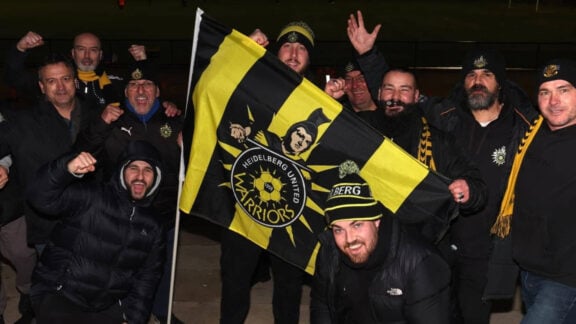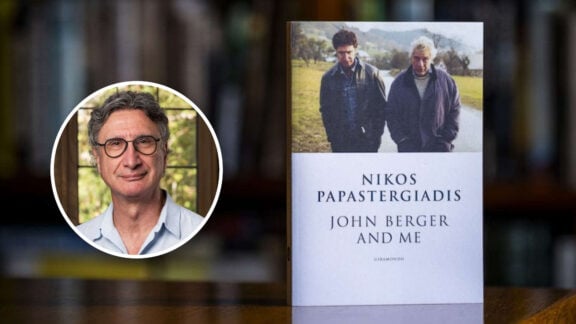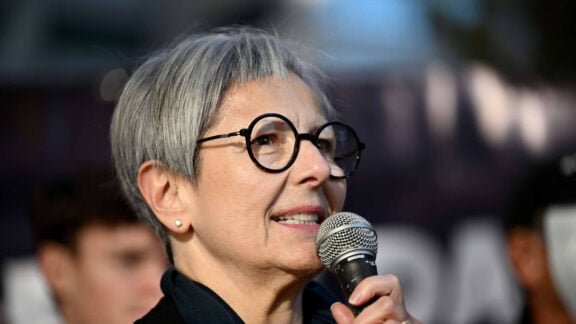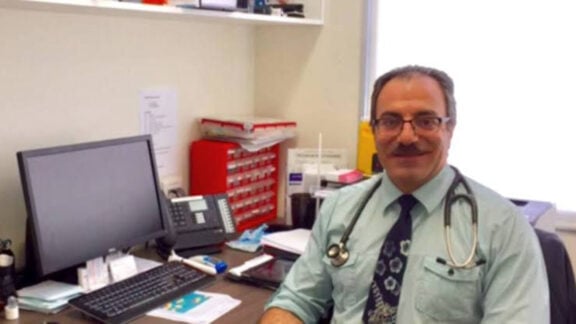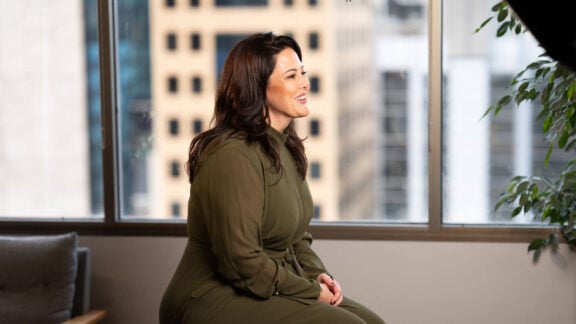In front of a packed Greek Centre in Melbourne last week, Aboriginal activist and historian Gary Foley made a stinging rebuke of not just the British Museum – and its actions in retaining stolen sacred items such as the Parthenon Marbles – but the connivance of the Australian Labor Party for introducing legislation in 2013 that makes it impossible to challenge loans to Australia of stolen Aboriginal artefacts.
After reflecting on the long history of support experienced by Aboriginal people from the Greek community in Australia, in an impassioned speech to launch the 2015 Greek History and Culture Seminars organised by the Greek Orthodox Community of Melbourne, Dr Foley drew on the shared experience of cultural loss – and the unavoidable parallel between the ongoing campaign for Aboriginal artefacts to be returned by the British Museum and the Parthenon Marbles.
Dr Foley’s presentation coincided with the news that the British Museum is preparing to lend a bark etching from its collection (created by Dja Dja Wurrung people in central Victoria, that was taken by a Scottish settler in the 1850s) to the National Museum of Australia for an exhibition called ‘Encounters’ that will open later this year.
As he told the attentive Greek Centre audience, the ‘Encounters’ project is salt in the wound to a loan ten years ago made by the British Museum to the Melbourne Museum – a situation in which Dr Foley was intimately involved.
In 2004, Dr Foley resigned as a senior curator of the Melbourne Museum after his employer resisted legal attempts – under the then Federal Cultural Heritage legislation – to keep the bark etchings in Australia. At the time, Aboriginal groups sought – and got – the assistance of the Greek community to support their campaign.
The items in question – believed to be the only surviving examples in the world of Victorian Indigenous bark art – have been in storage at the British Museum for over 150 years until their display ten years ago in Victoria. At least one of the items is due to return, with a host of other Indigenous artefacts, just for the duration of the ‘Encounters’ show.
Faced with history repeating itself, Dr Foley says changes to legislation under the The Protection of Cultural Objects on Loan Act, enacted by the Gillard/Rudd Labor government, makes it harder today to contest the British Museum’s actions – and those of its Australian partners.
“You would expect the conservatives to support the Act, but what wasn’t expected was that a Labor government would be involved in such an exercise,” Foley told Neos Kosmos shortly after the Greek Centre event.
“They were the government in power. Peter Garrett was the relevant minister at one point, and the whole legislation went through a period of both Rudd and Gillard governments, and they’re the ones who need to be called to account.”
After the 2004 controversy, it appears the legislation was initiated at the call of Australia’s major cultural institutions who were keen on obtaining a legal guarantee to foreign partners (such as the British Museum) that items on loan in Australia would always return; so avoiding the fractious legal wranglings that took place a decade before.
Dr Foley says the Act ensures Australia’s even greater compliance with the British Museum’s anachronistic “colonial” position.
“We had legislation which went some way towards protecting Aboriginal people’s interest when it comes to cultural heritage, and that was removed.”
Repealing the legislation, says Foley, would be a way “to highlight the outrageous position of those at the British Museum who refuse to return anything to anybody, because they’re scared of the precedent that might be, in terms of the Parthenon Marbles.”
It’s clear that the ‘Encounters’ exhibition – the most ambitious show in the 14-year history of the National Museum of Australia – could not be mounted without the protection of the Act.
Despite its Australian curators’ ambitions for it to enliven a new discussion about the ownership and custodianship of Indigenous cultural objects, it is likely to be the museum’s most criticised and controversial show.
Reflecting the complexity of the debate around it, some might be surprised that the London version of the exhibition is being curated by an Indigenous Tasmanian – Gaye Sculthorpe, who previously worked at the Melbourne Museum and was appointed the curator of the British Museum’s Oceania and Australia section in 2013.
After five years of planning, ‘Encounters’ is due to open at the National Museum of Australia in November, after a related show at the British Museum which opens next month.
Meanwhile, Dr Foley and others are adamant that their only course of action is to draw the attention of the Australian people to the debate.
“The British Museum grew out of the era of colonialism. The rest of the world grew out of those ideas a hundred years ago,” says Foley.
“Their position has no credibility in the modern world. It’s really that simple.”


